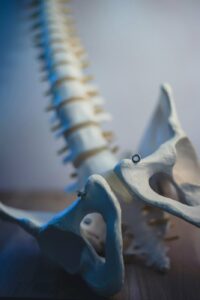Many patients who suffer from back pain think that undergoing surgery will alleviate their pain, however, this is not always the case. Whereas surgery was once considered a last resort, more and more people are opting for this interventional procedure with the hope that it will resolve their pain condition.
Surgical treatment seems a reasonable option where other treatments have produced little or no result, including spinal stenosis, sciatica, disc bulges, spondylolisthesis or degenerative scoliosis. However, even with advances in surgical techniques, not all spinal surgeries are successful and for some patients, ongoing persistent pain can be both physically and emotionally difficult to accept.
A common reason back surgeries are not effective, and some patients experience continued pain after surgery, is because the part of the spine that was operated on is not in fact the cause of the patient’s pain at all. X-rays and scans show spine structure, not pain. A certain structure suspected of being the cause of a patient’s pain may in fact be a coincidental finding. In other cases, the surgery may have been deemed appropriate but have resulted in complications or tissue inflammation that creates new issues, for example:
- Fibrosis (scar tissue): Scarring in the epidural region after surgery is common. Preclinical and clinical research has shown that scar tissue is responsible for approximately one third of cases of chronic spinal pain after surgical intervention. The build-up of scar tissue is thought to interfere with the ability of the spinal structure to manage with degenerative changes, resulting in pain.
- Recurrent disc herniation: a common cause of spinal pain after surgery whereby the removal of part of an intervertebral disc at one spinal level can lead to a weakening, and eventual disc herniation at another level. Patients presenting with this cause of spinal surgery pain usually experience an initial reduction in pain after surgery, followed by abrupt return of lower extremity pain when the new disc herniation occurs.
- Deconditioning of spinal musculature: All spinal surgeries can potentially alter the weight distribution among the spinal structures themselves causing muscular instability and weakened spinal muscles which can exacerbate spinal pain.
- In addition to changes in the spinal structure as the result of surgery, other causes of spinal surgery pain include smoking, spinal stenosis, surgical errors, and infection.
Whether you have had surgery and are unhappy with the outcome, or are considering surgical intervention to manage your pain, QPain can provide an individualised assessment and recommendation to suit your goals. Surgery can be a highly effective and necessary procedure, and at times it can also be either unsuccessful or unnecessary. To consider all of your options, contact QPain today.




